Bollywood Inquiry May 2019: STUDENT OF THE YEAR 2, DE DE PYAAR DE, PM NARENDRA MODI
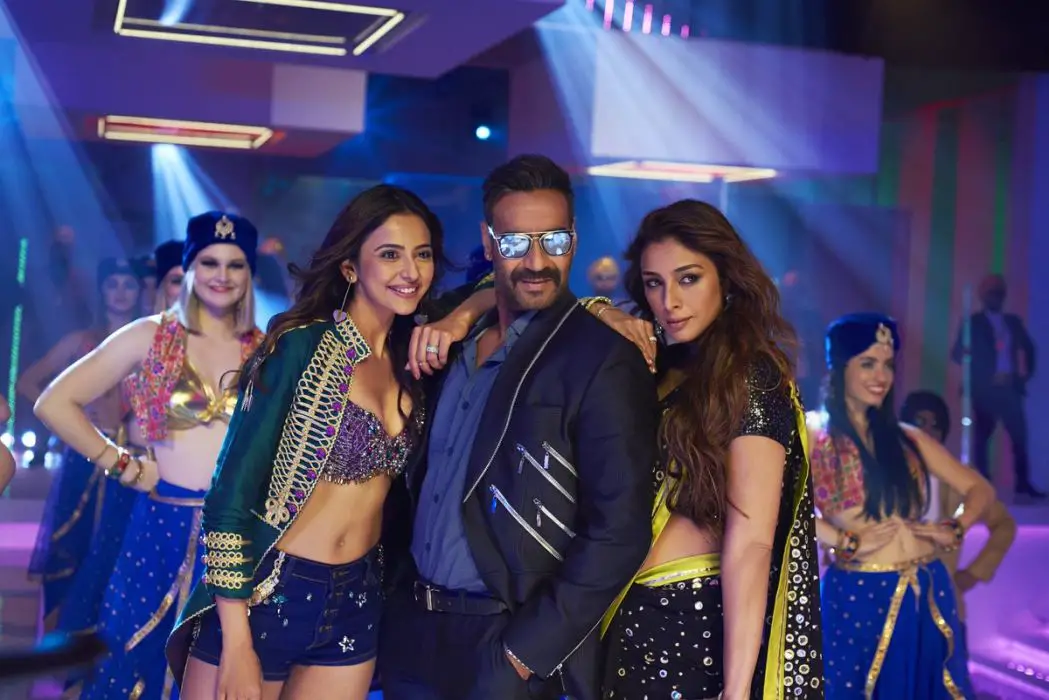
Musanna Ahmed is a freelance film critic writing for Film…
Bollywood Inquiry is a monthly column on the biggest new Bollywood movies. Disclaimer: I may not have seen all of the past month’s globally released features.
I saw three biggies in May, none of which I particularly liked, and the two that I missed – Blank and India’s Most Wanted – received mostly negative reviews anyway. Those two films played infrequently in my local cinemas, and were consequently quickly pulled as they failed to draw in sufficient crowds, therefore I didn’t get the chance to see them. Nevertheless, it’s safe to conclude that it was an overall disappointing past month for Bollywood releases. To begin with…
Student of the Year 2 (Punit Malhotra)
The first Student of the Year had its moments but was essentially too long – you could feel the arrhythmia in the pace of the vanilla student love triangle story as it struggled to justify its two-and-a-half hours running time. However, Student of the Year was watchable largely due to the enjoyably cinematic structure director Karan Johar employed in his storytelling.
It centred on a dying principle, played by the lively Rishi Kapoor, bedbound in a hospital as his students rolled in to visit him. Supporting characters would take turns to address the camera and share the story of an eventful period at St. Teresa’s college, revolved around three freshman friends vying for the coveted Student of the Year award.
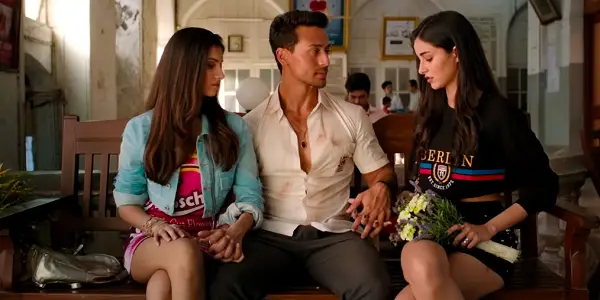
There was some intrigue generated in discovering what transpired in this supposedly major year for those students, but sadly it really just amounted to an ordinary turn of events – the trio constituted of two boys and a girl and, naturally, the boys became entangled in a struggle for the love of the girl. Student of the Year also amounted to an amazing fortune for the three newcomers: Alia Bhatt, Varun Dhawan and Sidharth Malhotra, who all continue to take leading roles and enjoy commercial success.
This sequel removes the unique timeline and narrative aspects for a dire, diluted, derivative teen drama that makes you question how anybody on the production team agreed to have this on their resume. The answer to that is obviously related to employment for most and capitalism for a few, but what’s sadder than the latter is the industry’s continuing nepotistic kleptocracy that comes at the expense of outsiders who want to establish themselves in Bollywood.
As with the previous film, the performers at the centre of Student of the Year 2 is majoritively made up of star-kids: Jackie Shroff’s son Tiger Shroff and Chunky Pandey’s daughter Ananya Pandey are two out of three, with the third, Tara Sutaria, being an actual outsider. Here’s a vehicle for them to launch a career in film with roles that allow them to express a little bit of every emotion, albeit none of them particularly strong or believable – more on that later.
We have a wasted casting at the centre in Tiger Shroff, already an established leading man. He plays Rohan Sachdev, a diligent student with a surprisingly good relationship with his parents – his physique suggests he never sees anyone outside of a gym – who wins a sports scholarship to the affluent St. Teresa’s where he rekindles his romance with childhood sweetheart Mia Chawla (Sutaria) and aims to become the star player on the kabbadi team, and in turn win the prestigious Student of the Year award.
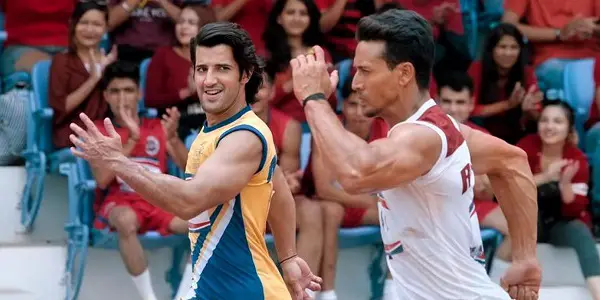
Rounding up the principal roles are an antagonistic, Quinn Fabray type, Shreya Randhawa (Pandey), and her brother Manav (Aditya Seal), Rohan’s rival athlete who delivers a passage of dialogue that would definitely fill John Hughes with envy. During a beating, Manav and his pals give to Rohan at the half-way mark, Manav grabs him and says: “Girlfriend on one hand, trophy on the other… with this school as the backdrop. That’s what you wanted huh? You are not the student of the year… but the loser of the year.”
But why Shroff’s casting as an elite-level athlete with uncorrupted morality, inspiring motivations and genuine care for his loved ones, is particularly problematic, though, is because, in an interview back in 2017, he waived a question about the casting of his potential female co-stars by saying, “I don’t get involved with the casting at all. I don’t really care about the padding around me.”
As disgraceful as his comments are to describe his co-leading women as “padding”, what’s worse is that, woefully, it seems he may have got involved with the writing if not the casting. The girls are totally undercut with a terrible screenplay that reduces them from characters with goals – Mia wants to be the best dancer in the city, Shreya… also wants to be the best dancer in the city – to mere choices for the male character, whose romantic interest in the two oscillates more times than the number of Bond movies. Mia and Shreya are ultimately relegated from dancing to playing tug of war for Rohan’s heart.
Rohan wants us to thirst for him too, as director Punit Malhotra grants Shroff a plenitude of gratuitous, topless shots and opportunities to display his physical strengths with several bouts of sporting activity. To a lesser extent, Pandey and Sutaria are also subject to the camera’s gaze, both sides of their torsos often glided over once Arshad Sayed’s script stalls in character development. There’s no doubt both actresses will go far up the Bollywood ladder after hopping on this platform – it’s just disappointing that they were given the short shrift by Shroff for their cinematic introductions.
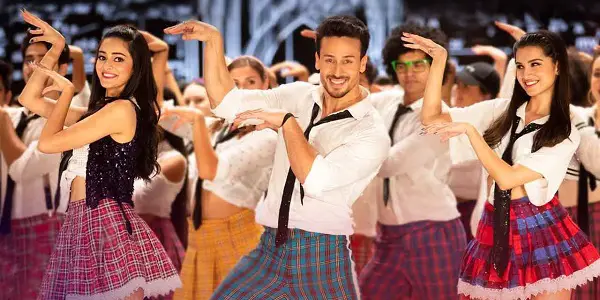
There’s a special appearance by Alia Bhatt in the credits for a musical sequence, where she hooks up with her fellow student of the year awardee, in a song lazily titled “The Hook Up Song”. Will Smith, whose cameo was pre-announced, checks off ‘Bollywood dancing’ from his bucket list by strutting his stuff for about ten seconds during “The Jawaani Song”.
Poor Will, can’t seem to attach himself to any good films lately. But the marketing genius he is, this cameo is timed right before the launch of Guy Ritchie’s Aladdin, another musical brown love story which actually had Tara Sutaria in the running for the role of Jasmine. As tenuous of a connection it may be, it’s certainly a connection that’ll benefit him.
These songs were very enjoyable, I must admit. Standard Indian pop music but boppy enough for me to want to reach for my phone and immediately save to Spotify. I saved that action for the end of the movie out of respect to my myself and my fellow patrons as a cinemagoer. However, in hindsight, I might not have felt so bad for using my phone whilst watching the movie, considering what I would have been saved from seeing. Student of the Year 2 is just a bad episode on the worst season of Glee.
De De Pyaar De (Give Me Love) (Akiv Ali)
Well here’s a perfectly good, totally unproblematic idea for a rom-com film in a business where women over 30 have been actively working to destroy sexist traditional on-screen representations – De De Pyaar De is about a 50-year-old man who enters into a relationship with a woman half his age.
As Aashish (Ajay Devgn) tells his friends, there’s nothing taboo about their romance, citing Michael Douglas and Catherine Zeta-Jones, Saif Ali Khan and Kareena Kapoor, and George and Amal Clooney – grossly referring to the esteemed barrister as “his wife” whilst name-dropping everyone else – as examples of successful age gap lovers. But producer Luv Ranjan seems to thrive in making misogynistic movies, and De De Pyaar De is no different.

The thorny love between Aashish and Ayesha (Rakul Preet Singh) begins after we meet the central characters at a bachelor’s party in London thrown by Aashish at his apartment for a friend, who is a little disappointed in the quiet function. Things spice up when a stripper, Ayesha, enters the fray but the male joy is quickly dissolved when the soon-to-be wife bursts in and flips out at her soon-to-be husband. That couple is quickly cast aside as Ayesha eyes up Aashish and stays behind in his apartment whilst the others leave.
A jaw-dropping scene follows in which Ayesha wakes up the next day and implies that she hope something happened between her and this middle-aged man whilst she was asleep. Her reckless dialogue goes on uncomfortably long before Aashish replies that he refuses to sleep with drunk women, then subsequently speaks to his therapist on how to proceed, establishing him as an upstanding protagonist in an unexpected circumstance. The USP of this film is in the characterisation of Ajay Devgn, who applies a sensitivity and soberness that his typically intense roles require him to suppress.
Yet the intentionally, carefully constructed credibility of the leading man is undercut with the regressive humour. One example being the moment when he introduces Ayesha as his secretary to ex-wife Manju (Tabu), the awkward moment that kicks off the second half of the movie. Ayesha is completely upended at every turn, always the butt of the jokes regarding their arrangement – she’s the one asked if he’s her dad, she’s the one told that men twenty years older than her are referred to as ‘uncle’, etc. The jabs only indirectly hit Aashish.
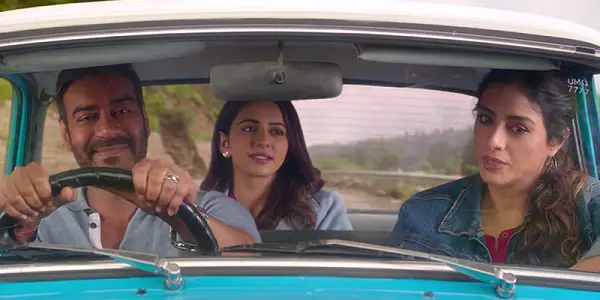
I must admit though, I laughed quite a bit watching De De Pyaar De. Is that enough to override the problems of the movie, that I was fairly amused? Ultimately, I wouldn’t say so, because I couldn’t remember any of the jokes some hours after leaving the theatre that weren’t already written in my reviewing notes.
But, in the moment, I liked how director Akiv Ali played fast and loose with the style. His eccentric expression uses intertextuality, bewildering fourth wall breaks (Aashish turning to us to let us know that he “he never pays for sex”), and bizarrely funny, meme-y edits, like the one of Devgn looking in the mirror and flexing his pecs to the sound of a revolver loading up and firing. For such a banal premise, the execution is enjoyably eccentric. If I needed anything else to make the experience more peculiar, it was when my theatre played the soundtrack of Tron: Legacy during the intermission.
Almost a Lost in Translation-like narrative, London is really nothing more than a backdrop. The idea is in reach, to potently depict love in a foreign land, especially considering the genuine loneliness felt in London by many. What the Big Smoke does contribute, however, is the ambience of “rich people problems”: the characters live in amazing flats, W1 is their favourite region, they wine and dine in upscale spots. They can buy anything except love.

None of these things detracted from the emotional weight of the scenario but they certainly preoccupied from me fully engaging with those stakes. So, when we got to the sappy climax, I’d be lying if I said I was genuinely moved, though I wouldn’t solely attribute that to being distracted by the AllSaints pieces or the enormous arcade machine in Aashish and Manju’s son’s room.
Overall, De De Pyaar De is a mildly entertaining subversion of Ajay Devgn’s tough guy act, giving him a role wherein he’s aware of his own mortality and maturity, which is also brilliantly realised in an action scene where Aashish injures his hand after an uppercut, an uncharacteristic response for the actor known for rugged characters like Bhagat Singh and Singham. It’s just a shame that the deconstruction of his screen image happens in large part at the expense of his leading lady.
PM Narendra Modi (Omung Kumar)
After several weeks of delay, the infamous Narendra Modi biopic has been released in cinemas, following the end of the general election which saw Modi resume the highest seat in India’s office. PM Narendra Modi was initially going to coincide with the first round of voting but its release was blocked by the country’s Election Commission on the grounds that it had the potential to distort the electoral level playing field.
To start with, I want to congratulate Omung Kumar for creating a new subgenre of the biopic – the Modiography. This new categorisation is one step up – actually, maybe about ten steps up – from the hagiography. The Modiography is a deifying biography that strongly engages with historical negationism to ensure its subject is literally Jesus. That’s not hyperbole; PM Narendra Modi actually suggests the current Indian Prime Minister could have walked on water on but chose not to.
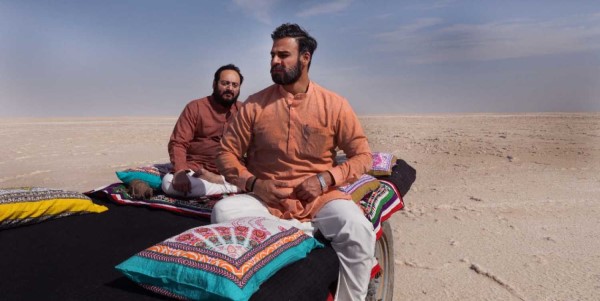
Billed as an inspiring story of a Gujarati boy from a lower socioeconomic background going from tea seller to leader of the nation, this piece of blatant propaganda has all the inspiring value to its audience as Donald Trump does to Kanye West; the blood, bigotry and prejudice enabled by his administration is conveniently ignored for a heavily embellished rags-to-riches narrative about succeeding against the odds. Any scenario for which you have to question,”did that really happen?” – and there’s a lot of moments that prompt doubt – the answer is, of course it didn’t. Again, this is a film which suggests Modi could have walked on water but chose not to.
Broadly sketching his life from milestone to milestone, we follow the head of the current government from young tea seller to regional organiser for paramilitary volunteer group RSS, and then from Chief Minister of Gujarat to PM candidate for the Bharatiya Janat Party. There are no interesting details revealed, only mind-boggling fabrications and outrageous exaggerations to what we’ve read in the news, which is a salient target in this remixed narrative.
The BJP’s anti-Muslim rhetoric, which was used to spur the 2002 Gujarat riots, is linked to a made-up villain called Aditya Reddy (played by a sleepwalking Prashant Narayanan), a business tycoon who supposedly manipulated the media to create the religious divide and was also responsible for the denial of Modi’s ban from the States which, in actuality, was the decision of the US consular division who objected to his juggling of human rights and religious freedom during and following the riots.
It’s hilariously ironic when the fictionalised Modi and a friend crash then-PM Indira Gandhi’s press conference to spite world leaders for “protecting her dictatorship”, because this movie is exactly the type to be made under a dictatorship. Everything Modi says from childhood intensely echoes with importance, and every action and reaction of his contributes to a hugely deifying characterisation. He’s a perfect human being according to this motion picture, one who’s never had so much as a mundane conversation and one who possesses a moral compass that makes Mr Rogers look corrupt in comparison.

The value of acting is demonetised by Vivek Oberoi, whose performance lands somewhere between a WWE wrestler and a Sims character, combining excessively theatrical line delivery with a limited set of robotic gesticulations. Everyone else in the film acts like they read their portion of the screenplay five minutes before the cameras started rolling.
It would make total sense that they were only given one or two takes considering the film was entirely filmed and edited within a three-month period. Limited takes aren’t always a bad idea but, when it comes to guiding actors or setting up shots or any other aspect of directing with very few takes, Kumar is simply no Clint Eastwood.
Even if you couldn’t understand the movie’s purpose due to a lack of subtitles or little understanding of its context or any other reason, it would be still be an unpleasant viewing experience because it’s so flimsily constructed. The ridiculously short production and post-production period is unfortunately transparent in the shoddy end result.
The frame rate is as inconsistent as a poorly optimised video game. Awfully low-res drone shots had me rubbing my eyes to seek visual clarity. The shot sequencing is the work of a less-than-amateur editor who doesn’t understand how to coherently establish space and time. Shots are awkwardly repeated, transitions are unnaturally timed, and the 180-degree rule is straight up outlawed. But what else was to be expected from a proudly glorifying feature born out of a Hindu nationalist’s desire to intervene in the election, rather than to sincerely depict the life of the most powerful man in India?
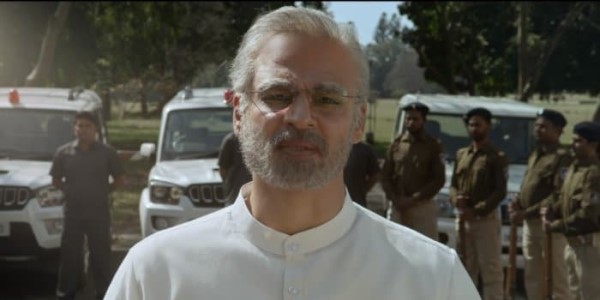
Watching this badly made, unjust veneration of Modi’s character, my biggest disappointment was that Kumar didn’t go further in imagining more hysterically absurd life events. Maybe Modi could have been shown to be shortlisted for the Nobel Peace Prize following his role in the Gujarat riots, or maybe a postscript could have noted that the aftermath of the banknote demonetisation was fine and dandy. Or maybe they could have shown the existence of a legitimate agitprop machine, the 24/7 TV channel dedicated to him called NaMo TV.
I’d say Leni Riefenstahl has been resurrected by the filmmakers but that would be an enormous insult to her considerable filmmaking ability, considering the astoundingly perfunctory effort that Kumar and Oberoi have put into their propagandistic craft here. PM Narendra Modi dreadfully fails to be an effective tool of manipulation – it’s an icky two-plus hour fellatio that surely Modi himself wouldn’t want to let finish, out of embarrassment.
And that concludes the May 2019 edition of Bollywood Inquiry! June is going to be all about Bollywood’s biggest superstar, Salman Khan, who returns with the decades-spanning Bharat, a remake of the popular South Korean film Ode to My Father. It’s set to be released on Eid, a lucrative occasion for cinemas in India, so it’ll undoubtedly be a box office winner but the bigger question is, is it going to be any good? Check out the trailer below and stay tuned for next month’s column, where I’ll have my answer.
Which Bollywood films are you looking forward to this year or have enjoyed so far? Let us know in the comments below.
Does content like this matter to you?
Become a Member and support film journalism. Unlock access to all of Film Inquiry`s great articles. Join a community of like-minded readers who are passionate about cinema - get access to our private members Network, give back to independent filmmakers, and more.
Musanna Ahmed is a freelance film critic writing for Film Inquiry, The Movie Waffler and The Upcoming. His taste in film knows no boundaries.













